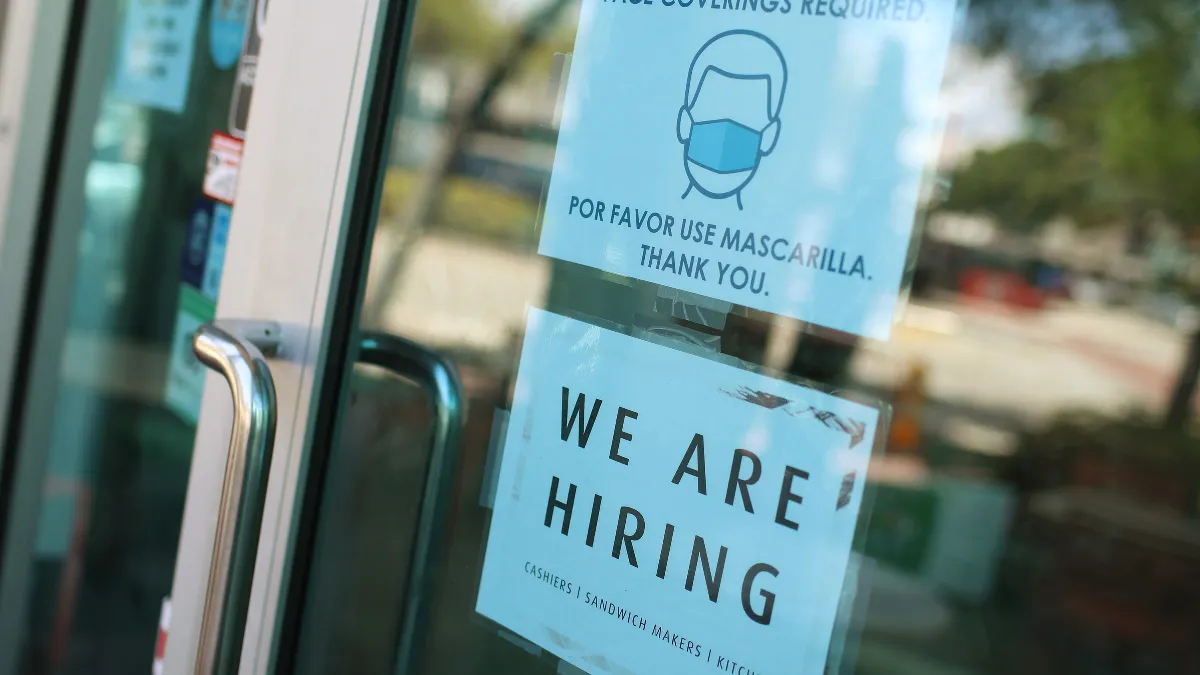Dive Brief:
- U.S. job seekers are confident in their ability to find work in the current job market, but their future outlook on the market plunged in June, according to the results of ZipRecruiter’s monthly Job Seeker Confidence Survey.
- Inflation, rising interest rates and high-profile tech industry layoffs have contributed to the declining sentiment, ZipRecruiter said. The share of job seekers who said they were confident about rejecting an offer for a better, future offer decreased from 33.4% in May to 31.7% in June. Among those that had rejected an offer, low pay was the top reason for doing so.
- Inflation has also impacted early retirement decisions. Of the 21.5% of June job seekers who previously retired at some point, 35.8% cited inflation as the top reason they had unretired. At the same time, ageism was a top concern for older job seekers; 24% said that being perceived as too old was a barrier to finding a job.
Dive Insight:
Though jobs may be plentiful, inflationary pressures have begun to eat into wages. A Willis Towers Watson survey of more than 9,600 U.S. workers found that 41% were living paycheck to paycheck, with housing, healthcare and healthy food among the basic needs respondents said they were struggling to access.
The state of the economy has even forced changes at the top of organizations. U.S. CEO changes rose 22% from April to May, according to a report last month from outplacement firm Challenger, Gray and Christmas. The firm noted that 2022 has seen the highest number of CEO departures through the month of May since it began tracking this data in 2002.
Other factors besides pay are driving employees’ job-seeking habits. A June report by Snagajob found that equity, flexibility and advancement opportunities all drove hourly workers to search for new roles.
Despite declining employee confidence, some signs indicate employers still view recruiting to be a challenge for the foreseeable future. Last month, the National Association of Corporate Directors published survey data showing that increased competition for talent was the biggest concern for directors of public companies over the next year.













